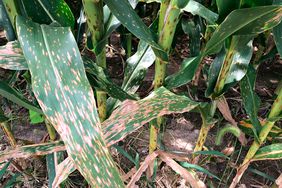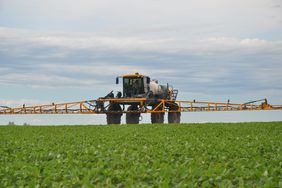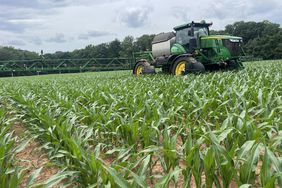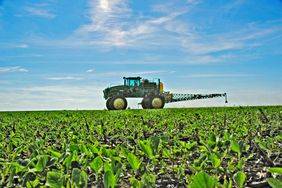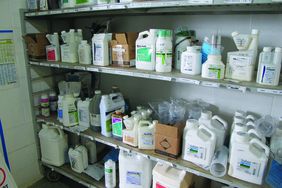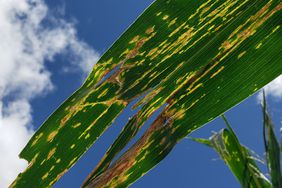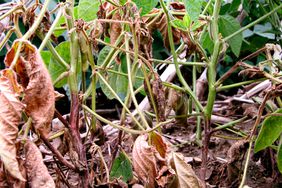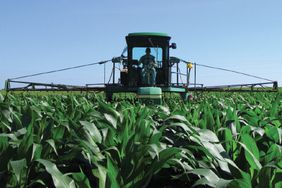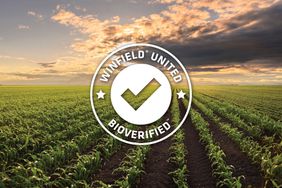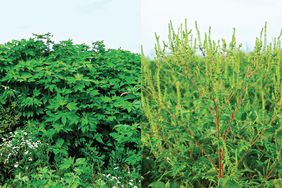:max_bytes(150000):strip_icc()/sprayingpesticides-1c70b9b8e77b41ea8e57cbe084a58d02.jpeg)
Getty Images/Sandro Balbuena
For farmers looking to add restricted use pesticides (RUP) to their management plans, obtaining a pesticide applicator certification is an important first step.
What is a restricted use pesticide?
RUPs are classified by the EPA as a pesticide that has “potential to cause unreasonable adverse effects to the environment and injury to applicators or bystanders without added restrictions.”
“With these pesticides, you have to follow more directions and there’s a higher risk,” says Betsy Danielson, a co-coordinator for the Iowa Pesticide Safety Education Program.
What types of certifications are available?
In Iowa, there are two main types of pesticide applicator certifications:
Private applicator
This certification is for anyone wishing to use a RUP on land they own or lease. This certification also covers hired employees of a farm, as long as no money is exchanged for the application service. For most farmers, a private applicator certification should be sufficient to use on their own farm.
Commercial applicator
Divided into several subcategories, commercial applicators certifications are required for anyone looking to get paid for pesticide application services. A commercial applicator must be certified for each category they will be applying pesticides under.
How do I get a pesticide applicator certification?
The Iowa Department of Agriculture and Land Stewardship (IDALS) oversees all pesticide applicator certifications in the state. Each person looking to obtain a certification must pass a certification exam in person or online.
“Extension’s role is to provide resources to help pass the exam.” Danielson says. “We have a private applicator manual that should answer any and all questions.”
The exam covers the basics of pesticide use, including topics like reading labels, safety precautions, and state and federal regulations.
“There are also special certifications,” Danielson says. “For example, if you’re going to fumigate a grain bin, then you also need some to take some additional exams. It's really important to work with the Department of Agriculture to find out exactly what you need.”
Most private applicator certificate exams in Iowa are free to take, with exceptions for exams given at college testing centers. Once the exam has been completed, additional paperwork will need to be submitted to the IDALS before certification can be granted.
How do I maintain my certification?
Pesticide applicators in Iowa have two options for maintaining certification. Some farmers opt to retake the certification test every three years. Others opt to attend continuing instruction courses provided by Extension services.
“We have 11 field agronomists located throughout Iowa who do those in person,” Danielson says. “The Pesticide Safety Education Program Office also offers a few live streamed sessions that allows farmers to keep their training despite a busy calendar.”
With this option, paperwork must be filed every third year proving the farmer attended the required training sessions. Farmers should double check how many credits need to be obtained each calendar year for recertification.
What can I do with a pesticide applicator certification?
Unlike general use pesticides, without a pesticide applicator certification, farmers are not able to buy RUPs from their co-op or other local dealer. Obtaining and maintaining an applicators certification allows farmers to buy and use RUPs.
Farmers with a certification are expected to follow the pesticide label, as well as any and all county, state, and federal laws.
“We want to make sure that when we are applying pesticides, they are not drifting on people or running off into our waterways,” Danielson says. “Those regulations are on the label, but continuing instruction courses are also important. We provide yearly updates because rules and regulations change.”
Editor's Note: While the EPA identifies RUPs, the process to obtain a certification varies from state to state. This article focuses on pesticide applicator certifications in Iowa. While the process may be similar in your area, please ensure you work with your state agency to stay compliant.
:max_bytes(150000):strip_icc()/headshot-bc4ff3c0c50c4e1cb8156ba02e8bf428.jpg)
